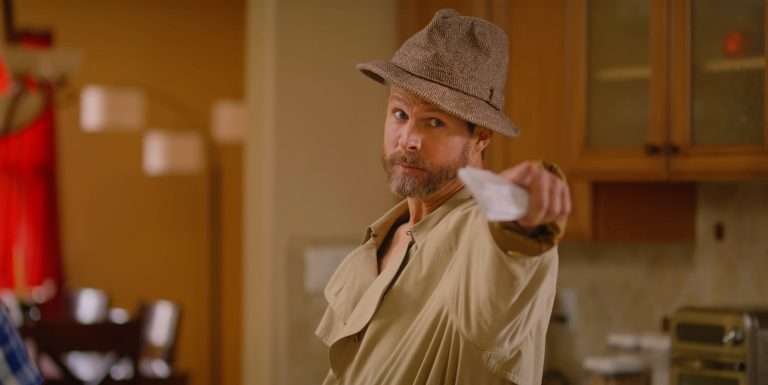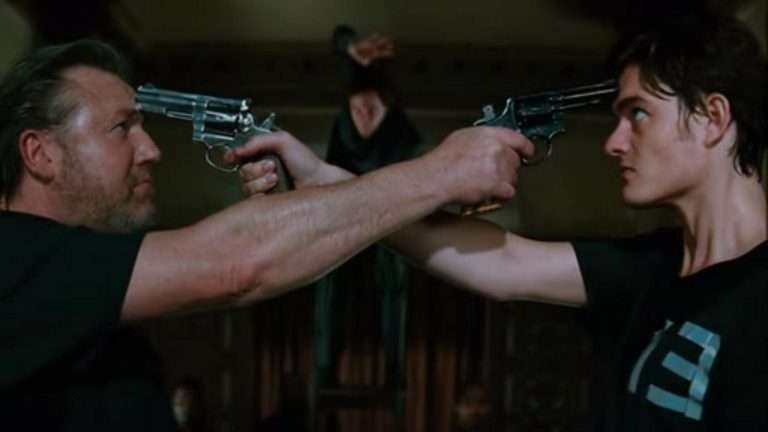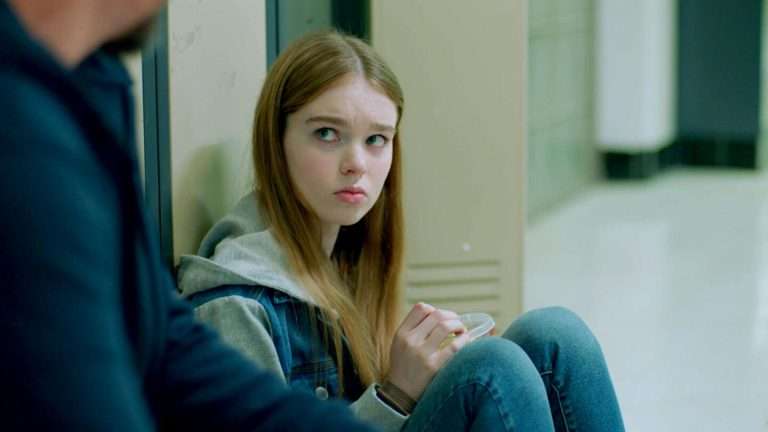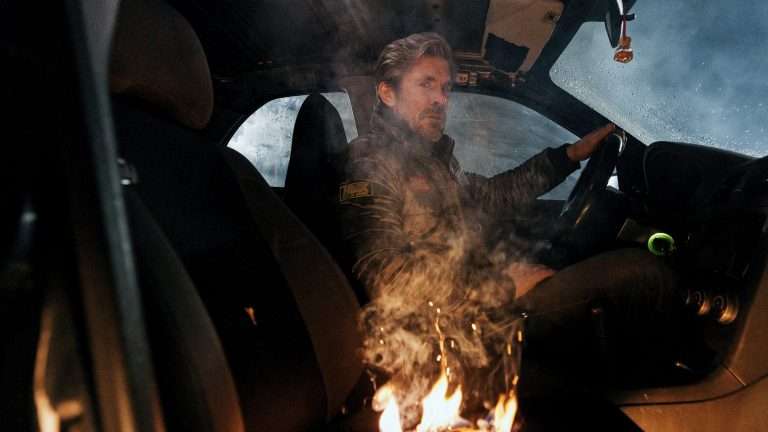Anyone who’s followed Kenneth Branagh’s adaptations of the Agatha Christie novels would know how the director is famous for incorporating his feverish use of Dutch angles into the film. He also stars as the legendary mustachioed sleuth Hercule Poirot, a performance that neatly balances the pulpiness of the genre without taking itself too seriously. Each successive adaptation under his belt has felt increasingly distant from Christie’s actual source material, and with “A Haunting in Venice,” Branagh is back with another ensemble outing featuring many biggish-to-big names phoning it in for the paycheck. Thankfully, this time, the genre mix helps elevate the filmmaking to a point that makes it entertaining enough to soak into the vibe of post-World War II Europe.
The timeline follows on from the previous Poirot case, last year’s fairly watchable “Death on the Nile”. Hercule Poirot is in genial retirement in Venice, avoiding getting his hands on any new case while seemingly being in an existential crisis. He has employed an ex-cop, Vitale (Riccardo Scamarcio), as his personal bodyguard. But when his friend, the best-selling American mystery author Ariadne Oliver (Tina Fey), is in town, she impishly tracks down Poirot in a Venice apartment. She convinces him to come with her to a Halloween séance. The venue? A nearby palazzo where the famous psychic Mrs Reynolds (Michelle Yeoh) would be present.
Reynolds, cheekily named after the untrustworthy little girl in the original Christie story who claims to have witnessed a murder, plans to communicate with a murder victim, Alicia Drake (Rowan Robinson). As we’re told, she was the beloved daughter of the palazzo’s owner – the former opera singer Rowena Drake (Kelly Reilly). While Poirot gets pursued for the gathering in hopes of debunking Reynolds’ views, his beliefs must get challenged first as things begin to fold upon the haunted palazzo over the night.
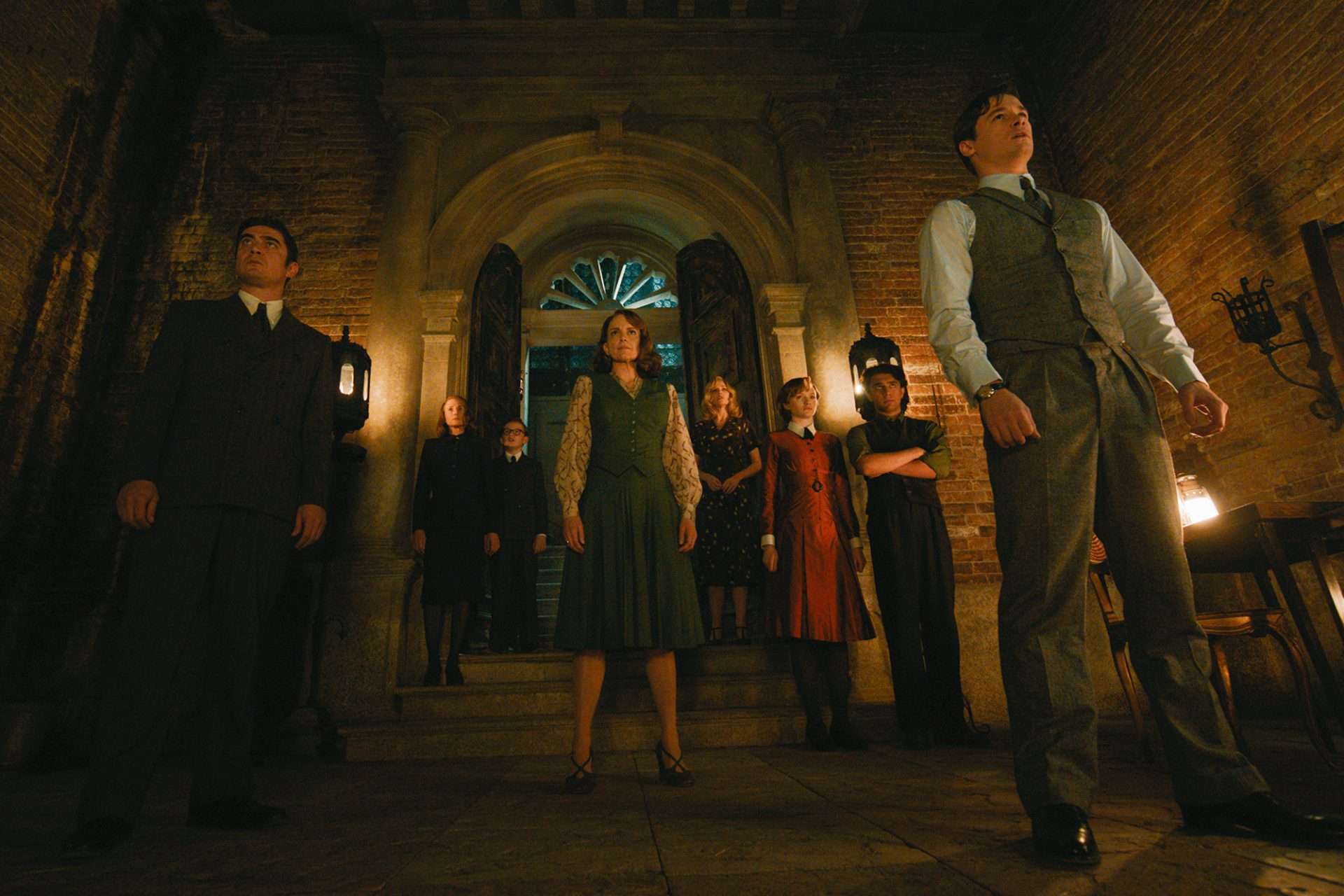
Christie’s 1969 novel, “Hallowe’en Party,” has easily been one of the acclaimed author’s least discussed works. Surprisingly, the book had never been adapted into a film despite the fascinating avenue of possibilities that the genre mix offered. At a time when even low-budget horror films have been cashing into nostalgic hijinks to evoke the supernatural, Branagh’s inspired (and sometimes a bit redundant) approach that’s defined his directorial style comes in handy with this clash of tones.
The use of fish-eye lenses and the classic Dutch tilts not only helped set the claustrophobic palazzo up but also appeared more in sync with the German expressionistic and Czech new-wave influences that emerged during the post-war era. Along with cinematographer Haris Zambarloukos, Branagh uses deep-focus compositions while staging actors against old artifacts and sections of furniture. Additional frames within the frame constantly help establish and reestablish the suspense.
There have already been plenty of parallels that critics have drawn between Branagh and Orsen Welles. This time around, he manages to sincerely channel Welles’ spirit behind the camera, and the script poignantly taps into the kind of crack in idealism and human spirit the war had marked across Europe. It’s the same kind of melancholia screenwriter Michael Green had laced with the dialogues of “Blade Runner 2049.” However, these underlying details get undercut as the film doesn’t hold onto the moments that require the time to breathe. By the end, the timing of the cuts feels more off-kilter than the horror element itself.
Most of the action occurs during a tremendous thunderstorm over the course of a night as the sepulchral interiors of the ancient Palazzo Creek. The setting not only provides a refreshing take to the murder mystery element but also distances its striking comparisons from recent biggies such as “Knives Out.” The gothic appeal gels quite neatly with the screwball element, unlike what the dull promotions for the film may have implied. “Scary stories make life less scary,” a character states to the detective at the start of the film.
While “A Haunting in Venice” won’t nearly qualify as a scary story for most, it’s just the kind of film that most studios have forgotten to make. It won’t make it to any lists of groundbreaking works, but it is certainly the kind of film that knows what it is. Kudos to the makers for not releasing this on Halloween.

![[Watch] The Beach House Trailer: A Cosmic Body-Horror nightmare starring Liana Liberato](https://79468c92.delivery.rocketcdn.me/wp-content/uploads/2020/06/The_Beach_House_Trailer_HOF-768x415.jpg)
